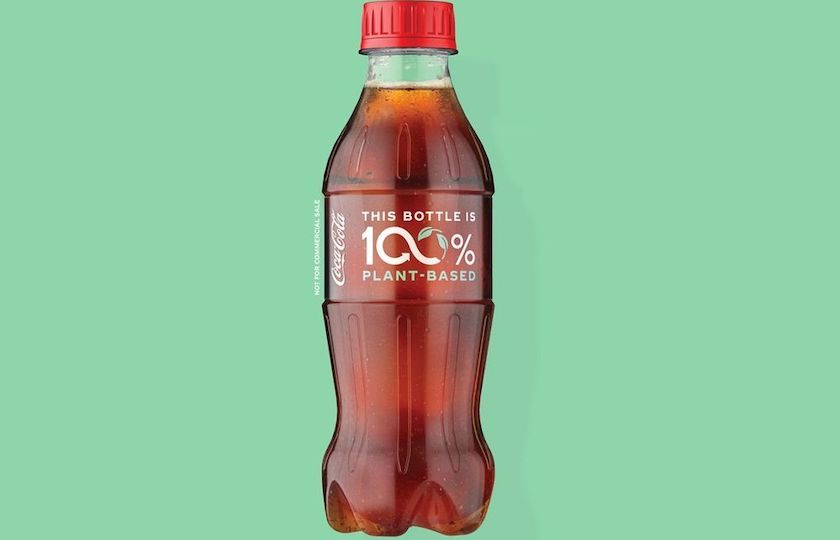Coca-Cola has unveiled the first plant-based bottle for beverages, made from 100 per cent plant-based sources, excluding bottle caps and labels.
This is the brand’s newest environmental initiative after the launch of PlantBottle – the recyclable packaging made from 30-per-cent vegan materials in 2009.
PlantBottle uses PET – the world’s most easily recycled plastic – which contains 30-per-cent monoethylene glycol (MEG) and 70 per cent terephthalic acid (PTA). Coca-Cola’s new 100-per-cent plant-based bottle is made from plant-based paraxylene (bPX) and uses a new Virent process – which has been converted to plant-based terephthalic acid (bPTA). The company also emphasises that the new bottle model can lead to a change in the commercial side of biomaterials in the future.
“We have been working with technology partners for many years to develop the right technologies to create a bottle with 100-per-cent plant-based content – aiming for the lowest possible carbon footprint – and it’s exciting that we have reached a point where these technologies exist and can be scaled by participants in the value chain,” said Nancy Quan, chief technical and innovation officer of Coca‑Cola Company.
Coca-Cola also partnered with Changchun Meihe Science & Technology to own the bMEG production process which allows the company to produce more types of renewable materials. Normally, bMEG is created by converting sugarcane or corn into bioethanol then bio-glycol to make bottles like PlantBottle. But now, Coca-Cola can use a simpler system thanks to the new production process.
“The inherent challenge with going through bioethanol is that you are competing with fuel,” said Dana Breed, global R&D director, packaging and sustainability, at The Coca-Cola Company. “We needed a next-generation MEG solution that addressed this challenge, but also one that could use second generation feedstock like forestry waste or agricultural byproducts.
“Our goal for plant-based PET is to use surplus agricultural products to minimise carbon footprint, so the combination of technologies brought by the partners for commercialisation is an ideal fit with this strategy.”
The Coca-Cola plant-based bottle is part of the company’s World Without Waste vision, in which it is working towards sustainability, by maximising the use of sustainable materials and minimising those that are harmful to the environment. Coca-Cola also commits that all the bottles launched on the market will be collected and recycled by 2030 to ensure that none of its packaging goes to waste.
In Europe and Japan, Coca-Cola and its partners aim to eliminate materials from PET in bottles by 2025 but retain some old PET parts to ensure product quality. This is also the reason why Coca-Cola is now focusing on investing in recycling technologies and finding alternative materials to achieve sustainability goals.
“We are taking significant steps to reduce use of ‘virgin’, oil-based plastic, as we work toward a circular economy and in support of a shared ambition of net-zero carbon emissions by 2050,” said Quan.
“We see plant-based plastics as playing a critical role in our overall PET mix in the future, supporting our objectives to reduce our carbon footprint, reduce our reliance on ‘virgin’ fossil fuels and boost collection of PET in support of a circular economy.”
Earlier this year, Coca-Cola rolled out bold new messages on its plastic beverage bottles sold in much of Asia, encouraging consumers to recycle them.



